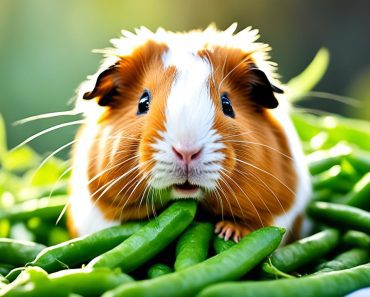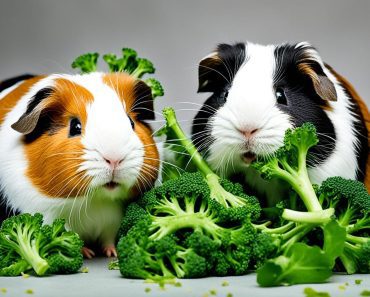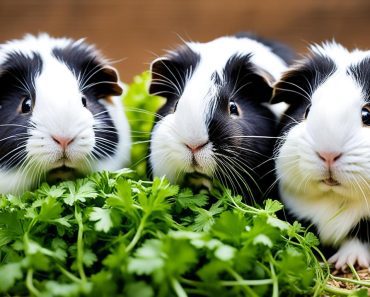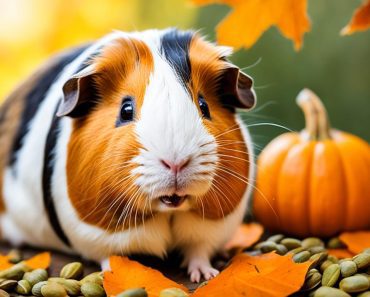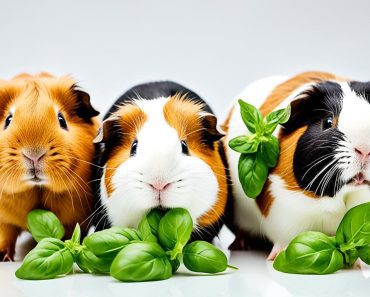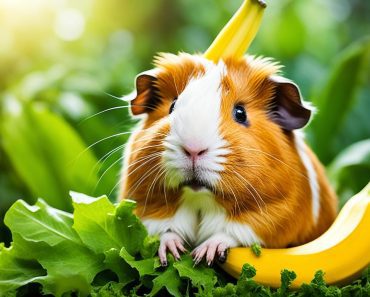As a proud guinea pig owner, I’m always concerned about providing my furry friend with a healthy and balanced diet. One question that often comes up is whether guinea pigs can eat bread. After conducting extensive research, I’ve discovered that bread should not be a part of a guinea pig’s diet.
Bread provides little nutritional benefit for guinea pigs and may even cause digestive issues. Feeding bread to your guinea pig can lead to constipation, bloating, gas, diarrhea, and dental problems. Additionally, consuming bread can contribute to obesity in guinea pigs.
It’s important to offer guinea pigs a diet that is specifically tailored to their nutritional needs. While it may be tempting to share human food with your pet, it’s crucial to remember that guinea pigs have unique dietary requirements.
Can Guinea Pigs Eat Bread? Yes, but it is best not to.
- Bread should not be fed to guinea pigs as it provides little nutritional benefit and can cause digestive issues.
- Feeding bread to guinea pigs can lead to constipation, bloating, gas, diarrhea, and dental problems.
- Guinea pigs require a diet that is specifically tailored to their nutritional needs and should not be fed human food.
What Do Guinea Pigs Eat?
When it comes to the diet of guinea pigs, it is important to provide them with the right balance of nutrients to keep them healthy and happy. A guinea pig’s diet should primarily consist of grass hay, such as Timothy or orchard grass hay. This type of hay is not only essential for their digestion but also helps maintain their dental health.
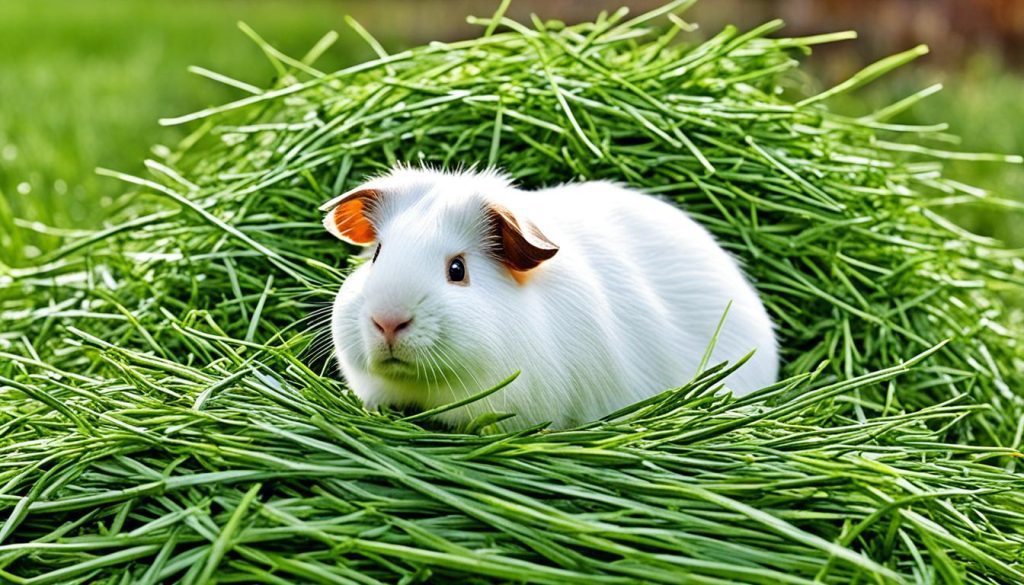
In addition to hay, guinea pigs need a small amount of guinea pig pellets to ensure they are getting all the necessary vitamins and minerals. These pellets should be specifically formulated for guinea pigs and should not contain any seeds or corn.
Fresh vegetables should also be a part of a guinea pig’s diet. It is best to provide a variety of vegetables to ensure they are getting a wide range of nutrients. Some great options include bell peppers, cucumber, and leafy greens like romaine lettuce. However, it is important to introduce new vegetables gradually to prevent digestive upset.
Guinea pigs also require a source of vitamin C, as they cannot produce it themselves. A lack of vitamin C can lead to health problems such as scurvy. To meet their vitamin C needs, you can offer them small amounts of fruits that are high in vitamin C, such as oranges or strawberries, as an occasional treat.
Water should be available to guinea pigs at all times. Make sure to provide them with fresh, clean water in a water bottle or bowl that they can easily access.
Sample Diet for a Guinea Pig:
| Food | Amount |
|---|---|
| Grass Hay (Timothy or Orchard Grass) | Unlimited |
| Guinea Pig Pellets | 1/8 cup per day |
| Fresh Vegetables | 1 cup per day |
| Vitamin C-rich Fruits | 1-2 small pieces per day |
Remember, every guinea pig is unique, and their dietary needs may vary. It is always a good idea to consult with a veterinarian for personalized advice on your guinea pig’s diet and nutrition.
What Can Guinea Pigs Not Eat?
In addition to bread, there are several other foods that should not be fed to guinea pigs. It’s important to be aware of these foods to avoid potential health issues for your furry friends. Here is a list of foods that are dangerous or toxic to guinea pigs:
- Meat: Guinea pigs are herbivores and cannot digest meat properly.
- Pellets or commercial food intended for other animals: Guinea pig food is specially formulated to meet their nutritional needs.
- Multivitamins: Guinea pigs require specific vitamins and minerals in controlled amounts.
- Nuts and seeds: They can be a choking hazard and are too high in fat for guinea pigs.
- Dried fruits: These can be high in sugar and preservatives, which are not suitable for guinea pig digestion.
- Spoiled human foods: Avoid giving guinea pigs any food that is unfit for human consumption.
- Mushrooms: Some mushrooms can be toxic to guinea pigs.
- Potatoes: Raw potatoes and potato skins contain toxic substances that can be harmful to guinea pigs.
- Avocado: Avocado contains a substance called persin, which is toxic to guinea pigs.
- Iceberg lettuce: It lacks nutritional value and can cause digestive upset.
- High-starch foods like cake, beans, bread, and grains: These foods can cause digestive issues and are not suitable for guinea pigs.
Note: Some vegetables like spinach, kale, collards, and certain cruciferous vegetables should only be given sparingly due to their high oxalate content. Additionally, commercial treats with excessive fat and sugar should be avoided.
It’s important to always check the suitability of any food before feeding it to your guinea pig. Their digestive system is sensitive, and certain foods can cause serious harm or even death. By providing a safe and appropriate diet, you can ensure the well-being and longevity of your beloved guinea pigs.
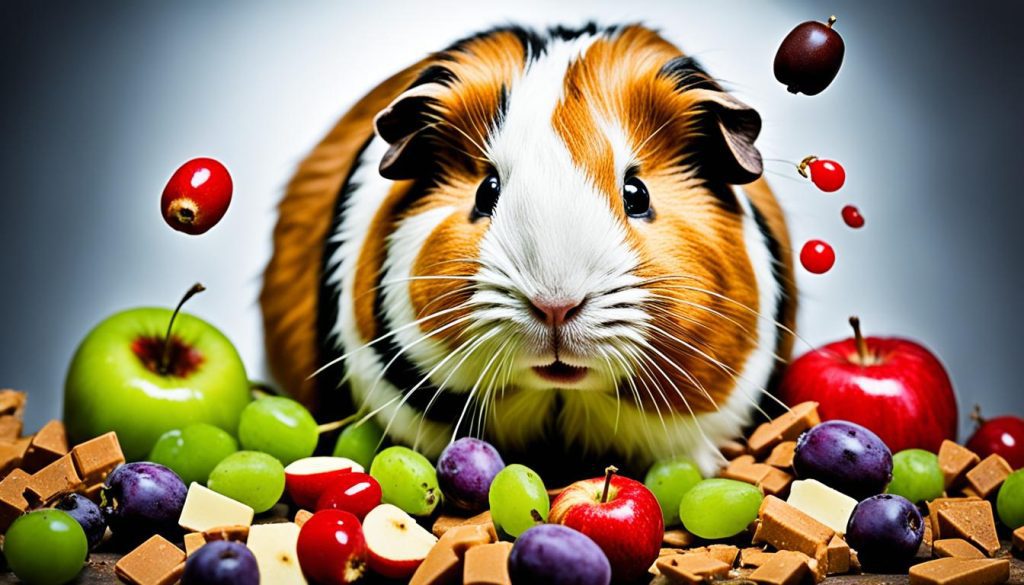
| Foods to Avoid for Guinea Pigs | Dangerous Foods for Guinea Pigs | Toxic Foods for Guinea Pigs |
|---|---|---|
| Meat | Pellets or commercial food intended for other animals | Multivitamins |
| Nuts and seeds | Dried fruits | Spoiled human foods |
| Mushrooms | Potatoes | Avocado |
| Iceberg lettuce | High-starch foods like cake, beans, bread, and grains |
The Importance of Grass Hay for Guinea Pigs
When it comes to the diet of guinea pigs, grass hay plays a vital role in ensuring their overall well-being. Guinea pigs have specific needs when it comes to digestion and dental health, making grass hay an essential component of their diet.
Guinea pig dental health
One of the key benefits of grass hay is its positive impact on guinea pig dental health. Guinea pigs’ teeth constantly grow, and without proper wear, they can become overgrown and lead to serious dental problems. Chewing on grass hay helps keep their teeth trimmed and prevents issues like malocclusion, which can cause pain and difficulty eating.
Guinea pig digestion
Equally important, grass hay aids in guinea pig digestion. The high fiber content in hay promotes healthy gut motility and prevents gastrointestinal problems, such as constipation or bloating. It also provides the necessary roughage for proper digestion, ensuring that food moves efficiently through their digestive system.
Quality grass hay for guinea pigs
When choosing grass hay for your guinea pigs, it is crucial to opt for high-quality options like Timothy or orchard grass hay. These varieties are rich in nutrients, have a pleasing aroma, and are free from mold and dust. Optimal hay should be green, supple, and visually appealing.
Special considerations
While grass hay is suitable for most guinea pigs, there are exceptions. For example, alfalfa or clover hay should only be fed to young or pregnant guinea pigs due to their higher protein and calcium content, which is beneficial for their specific developmental needs.
By incorporating grass hay into your guinea pigs’ diet, you are providing them with essential nutrients for their digestion, promoting dental health, and ensuring their overall well-being.
| Benefits of Grass Hay for Guinea Pigs | |
|---|---|
| 1. Promotes dental health by keeping teeth trimmed | |
| 2. Aids in digestion and prevents gastrointestinal issues | |
| 3. Provides necessary fiber for healthy gut motility | |
| 4. High-quality hay is rich in nutrients | |
| 5. Alfalfa or clover hay is suitable for young or pregnant guinea pigs |
Providing a Balanced Diet for Guinea Pigs
Along with grass hay, guinea pigs should be provided with a balanced diet that includes fresh vegetables and a small amount of guinea pig pellets. A guinea pig’s diet plays a crucial role in their overall health and well-being.
Vegetables and Fruits
Vegetables should make up about 1 cup of a guinea pig’s daily diet. It is important to offer a variety of vegetables to ensure they receive a wide range of nutrients. However, it is crucial to avoid high-calcium vegetables as they can lead to urinary problems in guinea pigs. Some safe vegetables for guinea pigs include:
- Carrots
- Bell peppers
- Cucumbers
- Zucchini
- Romaine lettuce
In addition to vegetables, small quantities of vitamin C-rich fruits can be offered as treats. Fruits should be given in moderation due to their sugar content. Some suitable fruits for guinea pigs include:
- Apples
- Berries (strawberries, blueberries, raspberries)
- Oranges (in small amounts)
Guinea Pig Pellets
Guinea pig pellets should be a supplement to their diet and should not replace their main source of nutrition, which is grass hay. Look for guinea pig pellets that are specifically formulated for their nutritional needs and are corn-free and seed-free. The pellets should be fed in small quantities, as overfeeding can lead to obesity. Follow the recommended serving size based on your guinea pig’s weight.
Introduction of New Foods
When introducing new foods to your guinea pig, it is important to do so gradually. Start by offering small amounts of the new food and monitor their digestion for any signs of upset, such as diarrhea or bloating. This will help prevent any digestive issues or sensitivities from arising. If your guinea pig shows any adverse reactions, consult a veterinarian.
Remember to always provide clean, fresh water for your guinea pig and ensure their food is stored properly to maintain its nutritional value.
Conclusion
It is vital to understand the importance of a proper diet when feeding guinea pigs. One key aspect to note is that guinea pigs should not be given bread or other high-starch foods. These types of foods offer little nutritional value and can cause digestive issues in guinea pigs, such as constipation, bloating, and diarrhea. It is crucial to provide a balanced diet consisting of grass hay, vegetables, pellets, and occasional treats.
By offering a varied diet, you can ensure that your guinea pig receives the necessary nutrients for optimal health and wellbeing. Grass hay, such as Timothy or orchard grass hay, is essential for their digestion and dental health. It helps maintain gastrointestinal health, aids in digestion, and promotes the natural wearing down of their teeth.
Additionally, fresh vegetables should be included in their daily diet, while fruits can serve as occasional treats. Guinea pig pellets should be corn-free and seed-free, and they should not replace the grass hay.
Adhering to a proper feeding guide is essential to guaranteeing the health and happiness of your guinea pig. It is important to avoid certain foods that can cause digestive upset or health issues, such as bread and other high-starch foods. By providing a nutritious and balanced diet, you will ensure that your guinea pig thrives and lives a long, happy life.

